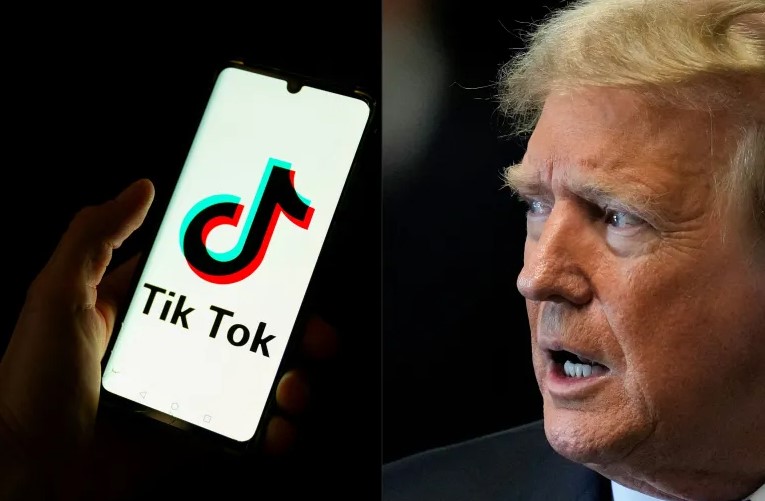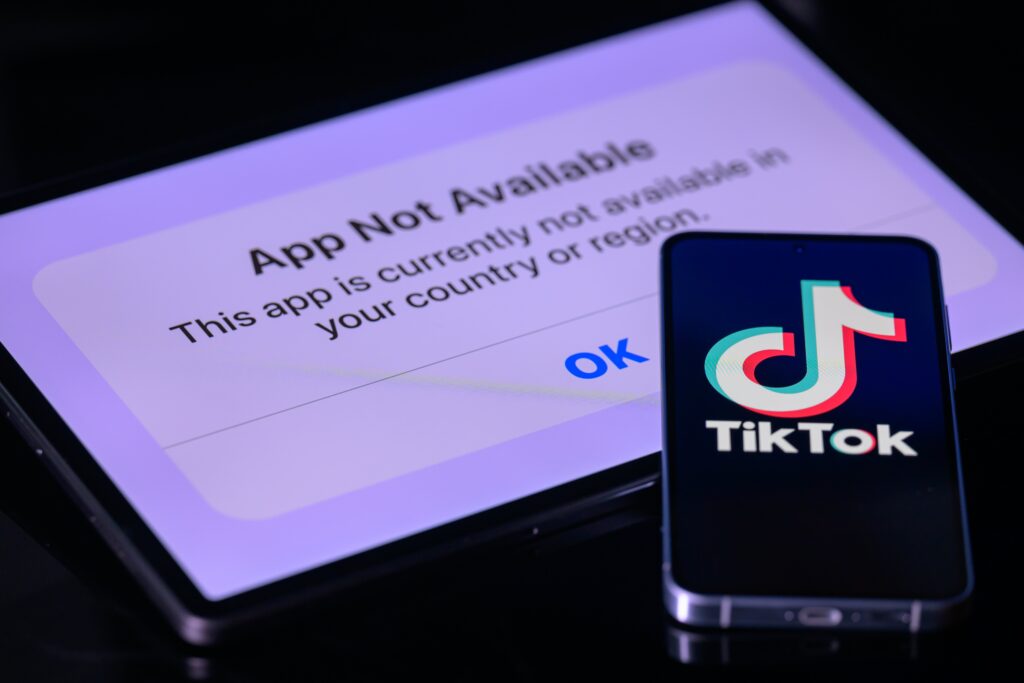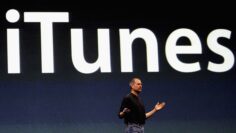
US bans TikTok. Here’s what could come next

The U.S. ban on TikTok officially began on Sunday, marking the latest chapter in a high-profile conflict between the federal government and one of the country’s most popular social media platforms.
Last spring, Congress passed a measure with broad bipartisan support, giving TikTok a 270-day window to sever its ties with its China-based parent company, ByteDance, or face a ban.
Instead of selling the app, TikTok pursued a legal challenge, arguing that the ban violated First Amendment rights. However, the Supreme Court ruled unanimously on Friday in favor of the government’s national security concerns, which include the potential risks of data collection and content manipulation by the Chinese government.
Despite the court ruling, TikTok’s future in the U.S. remains unclear. The ban does not require TikTok to shut down directly but instead targets third-party companies like app stores and cloud-service providers, which could allow TikTok to bypass some restrictions for now.
By Saturday evening, some users found the app inaccessible, with a message reading, “Sorry, TikTok isn’t available right now.” By Sunday morning, major app stores, including those run by Apple, Google, and Samsung, began removing TikTok from their platforms.
While the Biden administration previously stated it would not enforce the ban on Sunday, the responsibility for its implementation falls to President-elect Donald Trump, who takes office on Monday and has pledged to reverse the ban.
As the situation evolves, it remains to be seen what the next steps for TikTok will be.
TikTok’s quality is expected to worsen
TikTok could remain available for U.S. users over the coming days and weeks but the app would likely degrade in quality.
The ban on TikTok primarily targets app stores and hosting companies, which are crucial for the digital infrastructure supporting services like TikTok.
If the app is removed from major app stores, it would prevent new users from downloading TikTok and block existing users from updating the app. However, Apple clarified on Sunday that users who already have ByteDance apps installed will still be able to keep them on their devices.
“However, they can’t be re-downloaded if deleted or restored on a new device,” Apple stated. “In-app purchases and new subscriptions will also no longer be possible.”
Experts warn that without regular updates, the app’s quality could deteriorate over time, leading to issues such as slower video loading times and other performance glitches.
Additionally, a provision in the ban makes it illegal for hosting companies to continue providing services to TikTok. This provision is quite broad and could affect a range of companies.
If U.S.-based hosting providers stop supporting TikTok, the app would cease to function. However, TikTok could potentially partner with hosting companies outside the U.S., effectively making the service harder for U.S. authorities to regulate—at least in theory.
Such a move would allow TikTok to remain accessible to U.S. users, but experts suggest the app’s performance could suffer, as the digital infrastructure would be further removed from its user base.

Trump has vowed to reverse the ban
Sources informed IDEA TV News that former President Trump is exploring executive actions to allow TikTok to continue operating in the U.S.
One potential option is an executive order aimed at directing the government not to enforce the ban. However, experts caution that this could face significant legal hurdles, as an executive order cannot override a law passed by Congress and upheld by the Supreme Court.
The Justice Department under Trump’s administration could still choose not to enforce the law, assuring app stores and cloud-service providers that they wouldn’t face legal consequences for violating the ban. However, companies like Apple and Google might still face substantial fines, as the law includes a five-year statute of limitations, extending beyond Trump’s presidency.
During her confirmation hearing this week, Pam Bondi, Trump’s nominee for attorney general, declined to commit to enforcing the TikTok ban if confirmed.
TikTok CEO Shou Zi Chew, who was invited by the incoming administration to attend Trump’s inauguration, posted a video on TikTok Friday thanking Trump for his efforts to find a solution that would allow TikTok to remain available in the U.S.
“I want to thank President Trump for his commitment to work with us to find a solution that keeps TikTok available in the United States. This is a strong stand for the First Amendment and against arbitrary censorship,” Chew said in the video.
Congress may take up the ban a second time
TikTok may be waiting for a potential repeal of the law that led to the app’s ban.
For the law to be repealed, it would need to pass through both houses of Congress and then be signed by Trump.
The ban was approved by Congress just nine months ago, with the House passing it by a wide margin of 352-65. In the Senate, 79 members voted in favor, while 18 voted against it and three abstained.
Since then, Trump has expressed opposition to the ban, and Republicans have regained control of both chambers of Congress. However, it remains uncertain whether a repeal would make it to the floor, and what its outcome would be if it did.







